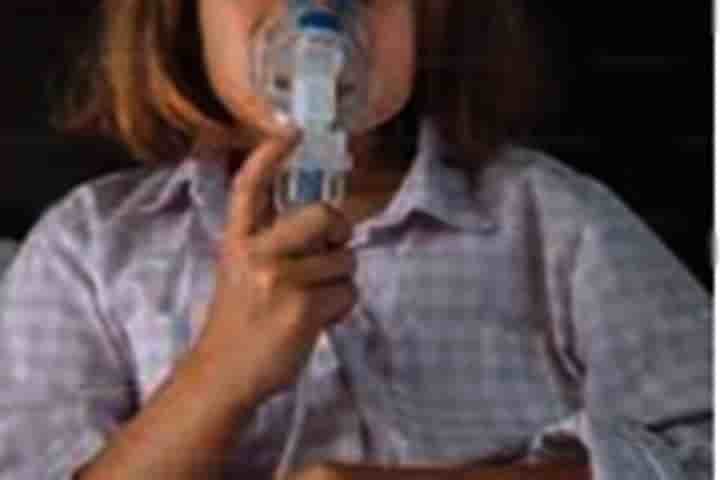

According to a story young children and babies growing up in urban areas suffer more from respiratory infections than those living in rural areas (Pic. Courtesy IANS)
Young children and babies growing up in urban areas suffer more from respiratory infections than those living in rural areas, according to two studies.
The study by a team at the University of Copenhagen, Denmark showed that children living in urban areas had an average of 17 respiratory infections like coughs and colds, before the age of three compared to an average of 15 infections in children living in rural areas.
“Our findings suggest that urban living is an independent risk factor for developing infections in early life when taking account of several related factors such as exposure to air pollution and starting day care,” said Dr Nicklas Brustad, a researcher and physician based at Gentofte Hospital and the University of Copenhagen.
“Interestingly, changes in the blood of pregnant mothers and newborn babies, as well as changes in the new-born immune system, seem to partly explain this relationship,” Brustad added.
The findings, presented at the European Respiratory Society International Congress in Milan, were done on 663 children and their mothers who took part in the research from pregnancy until the children were three years old.
Researchers did blood tests of mothers during pregnancy and their new-born babies and analysed the children’s immune systems when they were four weeks old. They found that children living in urban areas had differences in their immune systems compared to those living in rural areas.
“Our results suggest that the environment children live in can have an effect on their developing immune system before they are exposed to coughs and colds,” Brustad said.
“We continue to investigate why some otherwise healthy children are more prone to infections than others and what the implications are for later health,” he said.
Another study, conducted on 1,344 mothers and their children living in Scotland and England, also presented at the Congress and published in Pediatric Pulmonology shows factors such as attending day care, living in a damp home or near dense traffic behind an increase in the risk of chest infections in young children.
The study, however, revealed that breastfeeding reduces the risk of chest infections in childrens.
“The benefits of breastfeeding are well-established, and we should continue to support mothers who want to breastfeed their babies. We should also be making every effort to reduce exposure to infections in day care, keep homes free of damp and mould, reduce tobacco smoking and cut air pollution,” said Dr Tom Ruffles from Brighton and Sussex Medical School and University Hospitals Sussex NHS Foundation Trust, UK.
Minister for Electronics and Information Technology Ashwini Vaishnaw said on Friday that the government is…
Renowned human rights activist and political analyst Amjad Ayub Mirza has expressed a strong denunciation…
As was widely expected, the Indian economy grew by 6.5 per cent in real terms…
World No Tobacco Day, marked annually on 31 May, addresses a major public health challenge--the…
Defence Minister Rajnath Singh, addressing officers and sailors onboard India's first indigenous aircraft carrier INS…
The leadership team from the Central Tibetan Administration (CTA) arrived in Tokyo to participate in…